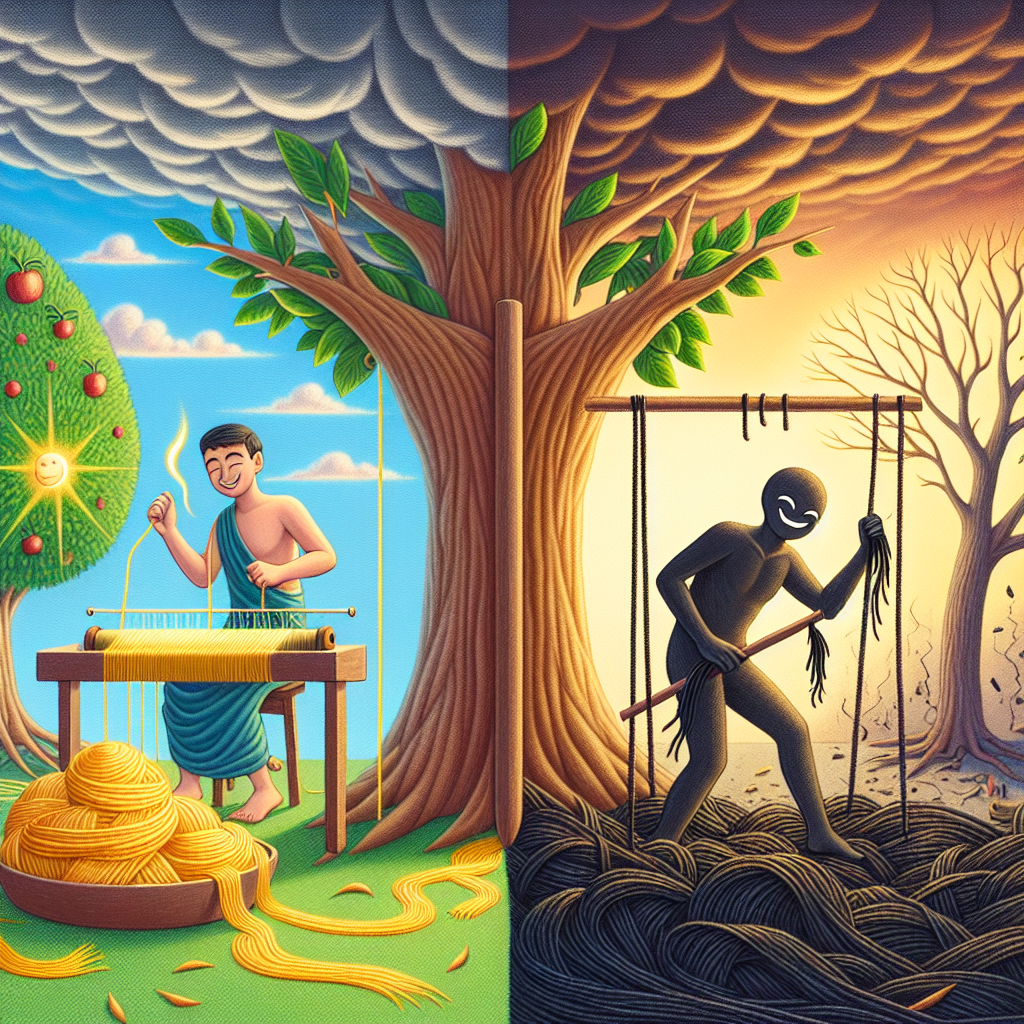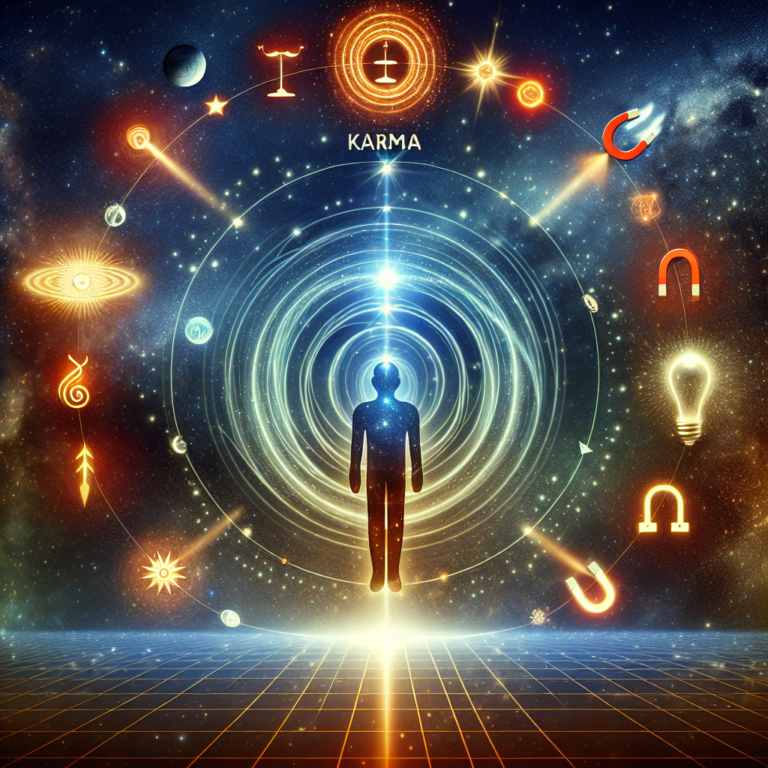The concepts of karma and destiny are often used interchangeably in casual conversation, but they represent two distinct philosophies about the nature of existence, human agency, and the interconnectedness of our lives. Understanding the intricate relationship between karma and destiny can provide profound insights into our day-to-day choices and their potential impact on our future.
Understanding Karma
Originating from ancient Indian spiritual traditions, karma is fundamentally the law of moral cause and effect. The term translates to "action" in Sanskrit, and it encompasses the idea that every action, whether good, bad, or neutral, creates a ripple effect. These ripples can manifest in myriad ways, shaping not only our current reality but also our future experiences.
Karma operates on the premise that our actions have consequences. The good we do will return to us positively, while harmful actions may lead to negative outcomes. This principle extends beyond mere actions to include thoughts and emotions. Therefore, karma reflects not only what we do but also how we perceive the world around us.
The Three Types of Karma
Karma can generally be categorized into three types:
Sanchita Karma: This refers to the accumulated actions from past lives. It is the totality of our past karmas that we bring into our current existence.
Prarabdha Karma: This is the portion of karma that is currently being experienced. It manifests in our current life and is essentially the fruit of past actions that we are destined to experience now.
- Kriyamana Karma: This consists of actions that we are currently taking that will shape our future. This type of karma represents our free will and choices in the present.
The beauty of karma lies in the empowerment it offers. While our past actions (sanchita karma) may influence our current situation (prarabdha karma), our present behavior (kriyamana karma) holds the potential to alter our future.
Understanding Destiny
Destiny, on the other hand, is often perceived as a predetermined path that one must follow. Its roots can be found in various cultures and philosophies where it is seen as a force or divine plan that dictates the course of one’s life irrespective of individual actions. In many interpretations, destiny implies that certain events are fated to occur, often viewed as unchangeable regardless of personal efforts.
The Role of Free Will
The philosophical debate surrounding destiny often touches upon the topic of free will. If our lives are destined to unfold in a specific way, do we have any control over our actions? Some believe that free will is simply an illusion, while others argue that our choices still matter in deciding how we respond to our destiny.
Many modern interpretations suggest a more nuanced link between destiny and free will—perhaps our destinies provide a framework or the circumstances under which we operate, but within that framework, we exercise free will through our decisions, intentions, and actions.
Karma vs. Destiny: The Interplay
The relationship between karma and destiny can be likened to a delicate dance. While destiny may set the stage—shaping our environment and circumstances based on past actions—the actions we take (karma) within that context can significantly influence how events unfold.
Influencing Circumstances: A person may find themselves in a challenging situation (destiny), yet through kindness, resilience, or hard work (karma), they can navigate those circumstances in a way that leads to a more favorable outcome.
Growth through Adversity: Similarly, individuals who may experience misfortune (destiny) can choose to view these challenges as opportunities for growth. The karma accrued through overcoming obstacles can transform one’s future trajectory positively.
- Moral Responsibility: Karma emphasizes a sense of moral responsibility that encourages individuals to be mindful of their actions. While destiny may present challenges and opportunities, one’s choices will always play a crucial role in defining outcomes and shaping future realities.
How to Align Destiny with Positive Karma
To harness the constructive aspects of karma in the context of destiny, individuals can adopt several practices:
Mindfulness: Being aware of your actions and their ramifications can cultivate positive karma. Mindfulness meditation can help deepen this awareness and enhance decision-making.
Compassion and Kindness: Engaging in acts of kindness not only helps others but also accumulates positive karma for oneself. This generosity can create a ripple effect, inviting more positivity into one’s life.
Learning from Mistakes: Acknowledge past mistakes, learn from them, and strive to make better choices moving forward. This process of growth is vital in shaping a favorable future.
Setting Intentions: Regularly reflecting on one’s intentions can help steer actions positively. Whether through journaling, meditation, or goal-setting, clarifying what you want to achieve can align your current actions with your desired future.
- Embracing Change: Understanding that both destiny and karma are dynamic concepts allows for flexibility. Embracing change can lead to new opportunities that alter one’s path for the better.
Conclusion
The interplay between karma and destiny is complex yet fascinating. Karma teaches us the importance of being mindful of our actions and their consequences, while destiny reminds us that certain circumstances may be beyond our control. Together, they shape our lives, offering lessons and insights that can guide us toward a more fulfilling existence.
Understanding and embracing both concepts allows individuals to take responsibility for their actions while recognizing that they are part of a larger, interconnected tapestry of experiences. By making conscious choices that align with one’s values and aspirations, it is possible to navigate the labyrinth of life with intention and purpose.
Frequently Asked Questions (FAQs)
1. Can I change my destiny through my actions?
Yes, your actions (karma) can influence how you experience your life and the challenges you face (destiny). Choosing to act positively can reshape your future experiences.
2. How can I accumulate good karma?
You can accumulate good karma by acting with kindness, compassion, honesty, and integrity. Helping others, volunteering, and making ethical choices can all contribute to positive karma.
3. Is karma the same in all cultures?
While the concept of karma is rooted in Eastern philosophies, similar concepts of moral cause and effect exist across various cultures and religions, though they may differ in terminology and interpretation.
4. Does karma carry over into future lives?
In many traditions, karma is believed to carry over into future lives, affecting the circumstances and challenges one may face based on actions taken in previous lives.
5. Can negative karma be changed?
Yes, negative karma can be mitigated through positive actions and genuine intentions. Acknowledging past mistakes and striving to make better choices can help transform negative karma into positive experiences in the future.
It seems like your message got cut off. How can I assist you today? If you have a specific topic or prompt in mind, please share it!, #Karma #Destiny #Actions #Shape #Future, #Karma #Destiny #Actions #Shape #Future, 1734997367, karma-vs-destiny-how-your-actions-shape-your-future





